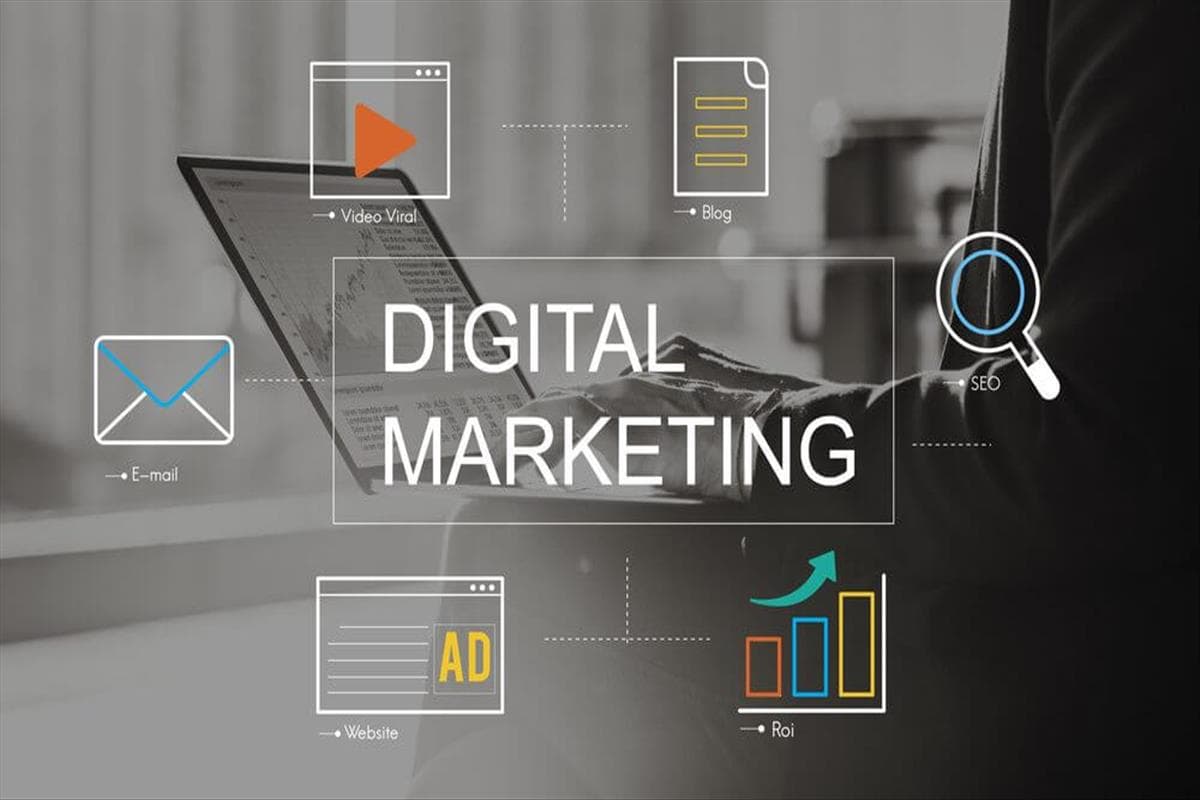
In today’s digital age, mastering the art of digital marketing has become crucial for businesses of all sizes. With the ever-growing online landscape, it is essential for companies to establish a strong online presence and effectively engage with their target audience. Digital marketing services have emerged as a powerful tool to help businesses navigate this complex world and achieve online success.
In this comprehensive guide, we will explore the strategies and techniques that can propel your digital marketing efforts to new heights. From search engine optimization (SEO) to social media marketing, we will delve into the various channels and methods that can drive traffic, enhance brand visibility, and generate leads. Whether you are new to the world of digital marketing or looking to refine your existing strategies, this guide will provide you with the knowledge and insights you need to succeed in the online arena.
Get ready to discover the best practices and proven strategies that will empower you to stand out from the competition and thrive in today’s competitive digital landscape. It’s time to unlock the secrets of digital marketing and unlock the doors to online success. Let’s dive in!
Understanding the Key Components of Digital Marketing
In today’s fast-paced digital landscape, successful businesses recognize the importance of employing effective digital marketing strategies. Digital marketing services play a crucial role in driving online success and reaching target audiences effectively. To master the world of digital marketing, it is essential to understand its key components and how each one contributes to the overall online marketing strategy.
Search Engine Optimization (SEO): The first component of digital marketing is search engine optimization. SEO focuses on optimizing websites’ online visibility and improving their rankings on search engine results pages. By utilizing relevant keywords, creating high-quality content, and implementing technical optimizations, businesses can organically attract more traffic to their websites and increase their online presence.
Social Media Marketing: Another important aspect of digital marketing is social media marketing. With billions of active users across various social media platforms, businesses can directly engage with their target audience and build brand awareness. By developing creative and informative content, utilizing paid advertising, and fostering meaningful interactions, social media marketing helps businesses establish a strong online presence and connect with their customers on a personal level.
Content Marketing: Content marketing involves creating and sharing relevant, valuable, and consistent content to attract and retain a clearly defined target audience. This component of digital marketing focuses on providing informative and engaging content through channels such as blogs, videos, podcasts, and infographics, among others. By delivering valuable content, businesses can establish themselves as thought leaders in their industry, drive traffic to their websites, and generate quality leads.
Digital Marketing Services
Mastering digital marketing necessitates a comprehensive understanding of these key components and how they intertwine to achieve online success. By leveraging effective search engine optimization techniques, harnessing the power of social media platforms, and employing a robust content marketing strategy, businesses can thrive in the digital realm and secure a competitive advantage in their respective industries.
Crafting an Effective Digital Marketing Strategy
Creating a successful digital marketing strategy is crucial for online businesses to thrive in today’s digital landscape. A well-crafted strategy allows businesses to effectively reach their target audience and drive conversions. Here are three key elements to consider when developing your digital marketing plan:
Define Your Goals:
Before diving into any marketing initiatives, it’s essential to clearly define your goals. Whether your objective is to increase brand awareness, generate leads, or boost sales, having a specific goal in mind will help you tailor your strategy accordingly. Understanding what you want to achieve will guide your decision-making process and ensure that your efforts are focused and purposeful.Identify Your Target Audience:
Knowing your target audience is vital in digital marketing. By understanding who your ideal customers are, you can tailor your messaging and tactics to resonate with them effectively. Conduct market research to gain insights into your audience’s demographics, interests, and behaviors. This information will enable you to create personalized and engaging content that speaks directly to their needs and preferences.Choose the Right Digital Marketing Channels:
With numerous digital marketing channels available, it’s crucial to choose the ones that align with your business goals and target audience. Popular channels include social media platforms like Facebook, Instagram, and LinkedIn, search engine optimization (SEO), email marketing, content marketing, and paid online advertising. Selecting the most appropriate channels will maximize your reach and engagement with your target audience.
Remember, crafting an effective digital marketing strategy is an ongoing process that requires continuous evaluation and adaptation. Regularly monitor your campaigns, analyze data and metrics, and make adjustments as necessary to optimize your results. By following these key steps, you’ll be well on your way to achieving success in the digital marketing landscape.
This concludes the Crafting an Effective Digital Marketing Strategy section of this guide. Stay tuned for the next section, where we will delve into the importance of content marketing in your overall digital strategy.
Implementing and Optimizing Digital Marketing Campaigns
In order to achieve online success through digital marketing, it is crucial to develop and implement effective strategies. Here are some key steps to consider when optimizing your digital marketing campaigns:
Define clear objectives: Clearly outlining your goals is essential before diving into any digital marketing campaign. Whether it is to increase brand awareness, boost website traffic, or generate leads, having a defined objective will help focus your efforts and measure success.
Choose the right channels: With a wide array of digital marketing channels available, selecting the most suitable ones for your business is crucial. Consider your target audience, industry, and the nature of your products or services. Whether it’s search engine optimization (SEO), pay-per-click (PPC) advertising, social media marketing, or email marketing, each channel offers unique advantages.
Create engaging content: Content is king in the digital marketing world. Developing high-quality, relevant, and engaging content will not only attract your target audience but also establish your brand as a credible authority within your industry. Utilize various types of content such as blog posts, videos, infographics, and ebooks to cater to different preferences and capture the attention of your potential customers.
Monitor and analyze results: Regularly tracking and analyzing the performance of your digital marketing campaigns is essential for optimization. Utilize tools such as Google Analytics to measure key metrics like website traffic, conversion rates, and engagement. By identifying trends and understanding your audience’s behavior, you can make data-driven decisions to continuously improve your campaigns.
Test and iterate: Digital marketing campaigns are not set in stone. It is vital to continuously test different strategies, messages, and formats to identify what resonates best with your audience. A/B testing can help you optimize various elements such as ad copy, landing page design, and email subject lines. By analyzing the results of these tests, you can refine your campaigns over time for better performance and higher returns.
Remember, digital marketing is an ever-evolving discipline, and it requires ongoing effort and adaptability. By implementing these strategies and staying abreast of industry trends, you can master the art of digital marketing and pave the way for online success.


